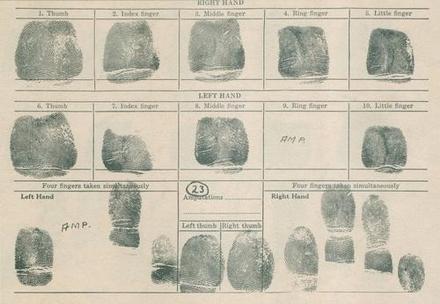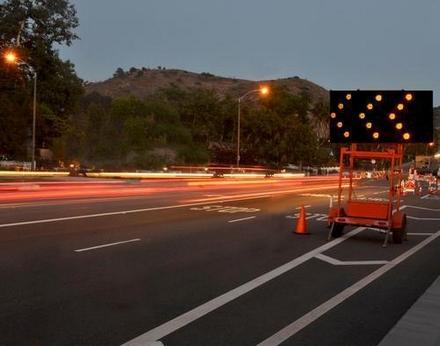TELEPHONES ANSWERED 24 HOURS A DAY
Recent Blog Posts
Where Does Heroin in Illinois Come From?
 Heroin, an extremely addictive opiate drug, has long plagued Illinois. Heroin can devastate lives and even communities, leading many to label the widespread heroin problem as an epidemic. The drug affects people from all walks of life, from already at-risk drug users to individuals recovering from surgery who find themselves addicted but out of pain medication and looking for an alternative. Where is the heroin circulating around Illinois coming from? Law enforcement officials say the state’s supply of heroin comes from two places: Mexico and South America.
Two Sources
Heroin is most commonly available in two different forms. There is the white or brownish powder, known as white powder, and a black, sticky substance known as black tar. The drug is often diluted using other drugs or starch, sugar, or powdered milk. Users can smoke, snort, or inject the highly addictive substance which provides a sense of euphoria.
Illinois is affected by both forms of the drug. Chicago is one of the most profitable markets for white powder heroin, while nearby St. Louis has a large demand for both the black tar and white powder forms. Officials say that because there is demand for both types of heroin, traffickers are moving the product up from both Mexico and South America. “Much of the heroin supply to the U.S. comes from Mexico, but most of the heroin that goes to the eastern portion of the country and to Chicago, comes from South America,” says one Illinois drug enforcement specialist.
Drug enforcement officials say that today’s drug traffickers are business-minded, and are constantly seeking out new ways to provide users with their product. Chicago and St. Louis are both large distribution hubs, where the heroin is delivered, divided, and then spread out.
Arrests Versus Education
While law enforcement officials say they plan to continue thwarting attempts to deliver and distribute heroin and other drugs to Illinois residents, officials say further education is also needed to help combat the heroin epidemic, as well as treatment options for addicts opposed to jail time. “We cannot arrest our way out of this situation,” says one drug task force member. Further education is needed, specialists say, to help inform the public of the reality of the problem. Everyone is vulnerable, and thanks to highly addictive pain medication often prescribed after a surgery or injury, many individuals with no past drug use find themselves seeking heroin. While arresting heroin users may get them off the street for the time being, treatment is needed to help addicts combat their addiction and move forward free from heroin.
Heroin Charges?
Heroin, an extremely addictive opiate drug, has long plagued Illinois. Heroin can devastate lives and even communities, leading many to label the widespread heroin problem as an epidemic. The drug affects people from all walks of life, from already at-risk drug users to individuals recovering from surgery who find themselves addicted but out of pain medication and looking for an alternative. Where is the heroin circulating around Illinois coming from? Law enforcement officials say the state’s supply of heroin comes from two places: Mexico and South America.
Two Sources
Heroin is most commonly available in two different forms. There is the white or brownish powder, known as white powder, and a black, sticky substance known as black tar. The drug is often diluted using other drugs or starch, sugar, or powdered milk. Users can smoke, snort, or inject the highly addictive substance which provides a sense of euphoria.
Illinois is affected by both forms of the drug. Chicago is one of the most profitable markets for white powder heroin, while nearby St. Louis has a large demand for both the black tar and white powder forms. Officials say that because there is demand for both types of heroin, traffickers are moving the product up from both Mexico and South America. “Much of the heroin supply to the U.S. comes from Mexico, but most of the heroin that goes to the eastern portion of the country and to Chicago, comes from South America,” says one Illinois drug enforcement specialist.
Drug enforcement officials say that today’s drug traffickers are business-minded, and are constantly seeking out new ways to provide users with their product. Chicago and St. Louis are both large distribution hubs, where the heroin is delivered, divided, and then spread out.
Arrests Versus Education
While law enforcement officials say they plan to continue thwarting attempts to deliver and distribute heroin and other drugs to Illinois residents, officials say further education is also needed to help combat the heroin epidemic, as well as treatment options for addicts opposed to jail time. “We cannot arrest our way out of this situation,” says one drug task force member. Further education is needed, specialists say, to help inform the public of the reality of the problem. Everyone is vulnerable, and thanks to highly addictive pain medication often prescribed after a surgery or injury, many individuals with no past drug use find themselves seeking heroin. While arresting heroin users may get them off the street for the time being, treatment is needed to help addicts combat their addiction and move forward free from heroin.
Heroin Charges?
Are you facing heroin related charges? If so, you need the help of a qualified Chicago area criminal defense attorney with experience helping clients with drug charges. At the Law Offices of Hal M. Garfinkel LLC, Chicago Criminal Defense Attorney, our team has years of experience providing aggressive, quality criminal defense to clients facing a variety of drug related charges. Be it heroin possession, distribution, or trafficking charges, we are here to help. Call 312-629-0669 today to learn more about how we can help you.
Investigation Finds Many Hate Crimes Go Unreported in America
 According to the FBI, an average of 5,000 to 7,000 hate crimes are reported each year in America. The bureau defines a hate crime as any criminal offense committed against a person or property that is motivated by a bias against a certain religion, race, disability, ethnicity, gender, gender identity, or sexual orientation. The FBI reports that nearly half of all hate crimes are driven by racial bias, and advocates worry that hate crimes may be increasing due to racial and religious tension in America.
According to the FBI, an average of 5,000 to 7,000 hate crimes are reported each year in America. The bureau defines a hate crime as any criminal offense committed against a person or property that is motivated by a bias against a certain religion, race, disability, ethnicity, gender, gender identity, or sexual orientation. The FBI reports that nearly half of all hate crimes are driven by racial bias, and advocates worry that hate crimes may be increasing due to racial and religious tension in America.
If you are facing hate crime charges, you need the help of an experienced Chicago area criminal defense attorney. Hate crime charges are very serious, and your freedom and reputation could be at stake. Serious charges require serious legal expertise. At the Law Offices of Hal M. Garfinkel LLC, Chicago Criminal Defense Attorney, Attorney Garfinkel and his team have extensive experience with the federal court system, and can help make sure your rights are protected during your case. Call 312-629-0669 today to schedule a free consultation with us to learn more.
Understanding Different Illinois Burglary Charges
 Burglary of any kind is a serious crime with serious consequences facing those who get caught. When most of us picture a burglary, we think of someone in all black sneaking or breaking into a property in hopes of stealing something. While that description is accurate in many cases, there are actually many different charges in Illinois associated with burglary. Where you break in, how you break in, and what your intent is after breaking in are all factors that determine which burglary related charges will be brought against you. Those arrested for burglary often find themselves confused by the charges they are facing. Below, we break down a few of the most common burglary related charges in Illinois.
Burglary of any kind is a serious crime with serious consequences facing those who get caught. When most of us picture a burglary, we think of someone in all black sneaking or breaking into a property in hopes of stealing something. While that description is accurate in many cases, there are actually many different charges in Illinois associated with burglary. Where you break in, how you break in, and what your intent is after breaking in are all factors that determine which burglary related charges will be brought against you. Those arrested for burglary often find themselves confused by the charges they are facing. Below, we break down a few of the most common burglary related charges in Illinois.
Burglary
Illinois Law (720 ILCS 5/19-1) states that a person commits burglary when they knowingly enter a building, vehicle, watercraft, trailer, or train car with the intent to steal something. Most burglaries in Illinois are considered Class 2 felonies, meaning those charged with burglary in Illinois face a prison sentence of up to seven years. If, however, the burglary takes place at a church, a school, a daycare center, or a child care related facility, the charge can be raised to a Class 1 felony, and the punishment can carry a prison sentence of anywhere from four to 15 years.
Chicago Police Prepared for Increased Gun Violence during Summer Months
 It appears the violence in Chicago, a city plagued by gun violence, shows no sign of slowing down. Compared to this time last year, the number of people shot in the city of Chicago is up 50 percent, and officials are worried. Summer is traditionally the most violent time period for Chicago, and city police say they have stepped up their efforts of combating gun violence.
It appears the violence in Chicago, a city plagued by gun violence, shows no sign of slowing down. Compared to this time last year, the number of people shot in the city of Chicago is up 50 percent, and officials are worried. Summer is traditionally the most violent time period for Chicago, and city police say they have stepped up their efforts of combating gun violence.
So far this year, there have been approximately 1,400 victims of gun violence, and at least 244 gun wound related fatalities. At this point last year, in comparison, only 904 people had been shot, and around 150 of those victims were shot fatally. That significant increase is alarming, considering violent crimes tend to increase with the heat of the summer.
Summertime Violence?
Researchers nationwide have long studied the correlation between increasing temperatures and greater numbers of violent crime. In 2001, a paper released by a University of Iowa professor titled “Heat and Violence” stated that there is a 2.6 percent increase nationwide in assaults and murders in the summer months, and that hotter summers tended to have more violence than cooler summers. A study on the city of Cleveland conducted in 2010 found that hotter temperatures do indeed correlate to increased amounts of aggressive crime, specifically domestic violence and non-aggravated assaults, or those involving no serious injury or weapon use.
Employees with Criminal Records May Perform Better Than Those without Records
 Finding a job with a criminal record can be difficult. Many employers across the country require that applicants disclose if they have a criminal record, and often turn down qualified employees based on their past arrests and convictions. According to the National Employment Law Project, nearly one third of American adults today have some type of prior conviction or arrest, meaning there are millions of Americans struggling to find employment. Fortunately, it seems the expectation that those with a criminal record will be bad employees may not be true. A new study indicates that employees with criminal records are no more likely to perform poorly on the job than their counterparts without records, and in fact, those with a record may outperform those without.
Finding a job with a criminal record can be difficult. Many employers across the country require that applicants disclose if they have a criminal record, and often turn down qualified employees based on their past arrests and convictions. According to the National Employment Law Project, nearly one third of American adults today have some type of prior conviction or arrest, meaning there are millions of Americans struggling to find employment. Fortunately, it seems the expectation that those with a criminal record will be bad employees may not be true. A new study indicates that employees with criminal records are no more likely to perform poorly on the job than their counterparts without records, and in fact, those with a record may outperform those without.
A Record Does Not Indicate a Poor Employee
Researchers with Harvard University and the University of Massachusetts Amherst conducted the study, which examined the nation’s largest employer - the United States military. The research shows that employers across the country who deny jobs to potential employees with criminal backgrounds may be losing out on quality staff. Research like this is largely unprecedented, as no evidence is available to assess the performance of past criminals in the workplace. The United States military, however, has actively pursued and hired those with felony backgrounds for years, making it a prime employer to study.
Illinois Police Cracking down on DUIs
 Illinois police statewide say they are doing everything they can to crack down on intoxicated drivers. According to the Illinois State Police, twenty five people have already been killed due to drunk drivers in the state of Illinois in 2016, and efforts are being taken to prevent further deaths. Driving under the influence of drugs or alcohol should be avoided at all costs, and those with DUI or DWI charges face serious, life changing consequences.
Illinois police statewide say they are doing everything they can to crack down on intoxicated drivers. According to the Illinois State Police, twenty five people have already been killed due to drunk drivers in the state of Illinois in 2016, and efforts are being taken to prevent further deaths. Driving under the influence of drugs or alcohol should be avoided at all costs, and those with DUI or DWI charges face serious, life changing consequences.
Reviving an Old Tactic
In District 16, police are reviving an old tactic in hopes of keeping drunk drivers on the road. We already know that a DUI can be a major financial burden, lead to loss of driving privileges, community service, and jail time, but now, a DUI conviction could cost you your reputation as well. District 16 officials has begun releasing a monthly list of all DUI offenders. Authorities in the district say it is a low cost method that may very well prevent intoxicated individuals from getting behind the wheel. “If that is something we can do that does not cost the State Police or the taxpayers any money, that might just keep one more person from making that bad decision, then it’s worth it,” says Illinois State Police Lieutenant Carl Heintz. If fines, jail time, and skyrocketed insurance rates were not enough to prevent DUIs, authorities are hoping potential embarrassment might do the trick.
Can Psychedelic Drugs Help Prevent Domestic Violence?
 Can psychedelic drugs like LSD and mushrooms help combat domestic violence? Possibly, at least according to recently released findings from the University of British Columbia’s Centre for the Advancement of Psychological Science and Law. The researchers studied a group of male inmates from an Illinois county jail, and their findings may indicate a future potential for using psychedelic drugs as a tool to prevent domestic violence.
Can psychedelic drugs like LSD and mushrooms help combat domestic violence? Possibly, at least according to recently released findings from the University of British Columbia’s Centre for the Advancement of Psychological Science and Law. The researchers studied a group of male inmates from an Illinois county jail, and their findings may indicate a future potential for using psychedelic drugs as a tool to prevent domestic violence.
More Tripping, Less Violence?
The researchers followed a group of over 300 newly released Illinois inmates for over six years using FBI records, tracking any run-ins they had with law enforcement. Prior to their release, each of the inmates indicated they had histories of substance abuse, and 72 percent of the inmates had some type of violent crime in their past. The inmates were monitored over the course of six years after their release.
Speed Cameras and Construction Zones
 Many communities across the country utilize speed cameras to identify and fine those driving over the speed limit. The automated cameras use radar technology to catch speeding vehicles, capture the vehicle's license plate number, and a ticket is later sent to the driver. These types of cameras are also common at red lights, and are also used at rail crossings and toll stations.
Many communities across the country utilize speed cameras to identify and fine those driving over the speed limit. The automated cameras use radar technology to catch speeding vehicles, capture the vehicle's license plate number, and a ticket is later sent to the driver. These types of cameras are also common at red lights, and are also used at rail crossings and toll stations.
Cameras like this are hot button issues in many states. While penalties for being caught by an automated camera are typically lighter compared to those from traditional police stops, opponents argue that defense against tickets from automatic cameras is difficult, and that the technology is not always reliable. Proponents, however, say the cameras encourage drivers to obey all traffic rules while freeing up police resources for other purposes. Three states, Oregon, Illinois, and Maryland, use speed cameras at highway construction zones, hoping to increase worker safety and reduce the number of construction zone crashes. Do these cameras really help?
Illinois Bill Would Increase Sex Crimes Prosecutions
 Illinois lawmakers and advocates are hoping that new, recently proposed legislation will encourage more victims of sex crimes to come forward and seek justice. Historically, victims of sex crimes, such as rape, are hesitant to come forward for a number of reasons. Many fear not being believed. Others fear retaliation from their abuser. Studies show how significant the problem is. Recent studies and surveys say that only a small number of rapes, somewhere between five and 20 percent of incidents, are actually reported, meaning many perpetrators walk free and are able to commit further crimes.
Illinois lawmakers and advocates are hoping that new, recently proposed legislation will encourage more victims of sex crimes to come forward and seek justice. Historically, victims of sex crimes, such as rape, are hesitant to come forward for a number of reasons. Many fear not being believed. Others fear retaliation from their abuser. Studies show how significant the problem is. Recent studies and surveys say that only a small number of rapes, somewhere between five and 20 percent of incidents, are actually reported, meaning many perpetrators walk free and are able to commit further crimes.
Additionally, sex crime advocates say that many of the cases that are reported are mishandled by authorities or are not investigated thoroughly enough. If passed into law, Senate Bill 3096, would help victims come forward and report their crimes, and ensure that police departments across the state handled each case appropriately.
Seniors Easy Targets of Financial Fraud and Identity Theft
 In America, everyone is at risk of being a victim of financial fraud. For seniors, however, the risk is unfortunately higher. Seniors are easy targets for criminals pursuing financial fraud or identity theft, and nationwide there are five million financial fraud cases involving senior citizens each year. Criminals continue to target seniors because they often do not realize they are being taken advantage of, and a large majority of fraud cases involving seniors do not ever get reported. Below we explain why senior citizens are at serious risk of financial fraud, and the most common ways criminals exploit them.
In America, everyone is at risk of being a victim of financial fraud. For seniors, however, the risk is unfortunately higher. Seniors are easy targets for criminals pursuing financial fraud or identity theft, and nationwide there are five million financial fraud cases involving senior citizens each year. Criminals continue to target seniors because they often do not realize they are being taken advantage of, and a large majority of fraud cases involving seniors do not ever get reported. Below we explain why senior citizens are at serious risk of financial fraud, and the most common ways criminals exploit them.
Why Are Seniors at Risk?
Cases of financial fraud are often underreported, and many others are caught too late. Many instances of financial fraud are detected long after the crime has been committed, making it difficult for law enforcement officials to track down the perpetrators. In many cases involving bank fraud, banks will handle the situation internally, meaning that these types of cases do not get reported often. In other cases, experts say people do not know the proper channels to report the crime committed against them, and just accept their losses.




